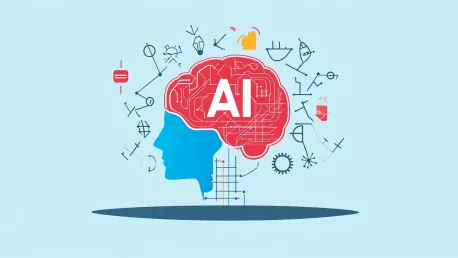Artificial intelligence (AI) has swiftly become a transformative force across multiple sectors of society, promising unprecedented advancements while simultaneously posing significant ethical, social, and practical concerns. This burgeoning technology is reshaping aspects of social well-being, business operations, and overall societal norms. The balance between the innovative potential of AI and the risks of inequity and exclusion it can create calls for a deeper understanding and careful scrutiny. As AI integrates more profoundly into everyday life, its impacts are increasingly multifaceted, stimulating both optimism for the future and a cautious awareness of the associated risks.
AI in Denmark’s Welfare System: Equity and Privacy Concerns
In Denmark, the deployment of AI tools in the welfare system, specifically designed for fraud detection, has sparked intense debates about equity and privacy. Amnesty International’s reports have highlighted troubling findings, revealing that algorithms intended to safeguard social benefits are, paradoxically, endangering the welfare of marginalized populations. Hellen Mukiri-Smith, a key researcher in these studies, contends that the ‘mass surveillance’ created by such algorithms violates non-discrimination rights. The system’s analysis of sensitive personal data, such as nationality and family relations, makes it particularly prone to biases that negatively impact foreigners and certain demographics.
This inclination towards bias becomes glaring when considering that an overwhelming 90% of cases flagged by these AI-driven investigations are unfounded. This statistic accentuates the flaws and ethical dilemmas inherent in their design. The controversial “Model Abroad” algorithm, in particular, has been criticized for its discriminatory potential, underscoring the necessity for more effective regulatory scrutiny and the establishment of equitable technological frameworks. These issues suggest that while AI can enhance operational efficiency, its rush to implementation must be tempered with careful ethical considerations.
AI’s Influence on the Corporate Landscape
The corporate sector is experiencing a significant shift due to AI’s pervasive influence, placing Chief Information Security Officers (CISOs) at the frontline of this transformation. These professionals must navigate the dual challenges of leveraging AI’s rapid technological advancements while safeguarding their organizations from potential vulnerabilities. AI’s remarkable capability to transform plain English instructions into functional software boosts efficiency, yet this very feature introduces considerable risks around data integrity and decision-making processes.
Jon Clay of Trend Micro emphasizes that despite its sophistication, AI remains vulnerable to adversarial attacks because it is, after all, software. This reality presents an ongoing challenge for CISOs, necessitating robust risk management strategies to mitigate potential vulnerabilities. The delicate task of harnessing AI for operational enhancement while protecting organizational assets from cyber threats underscores the complexity of integrating AI into corporate systems. Within this context, a balance must be struck to optimize AI’s benefits without compromising security concerns.
AI and Environmental Sustainability
Beyond business and welfare, the societal implications of AI extend into the crucial realm of environmental sustainability, eliciting a range of reactions. Climate activists express strong skepticism about AI, with some vocal critics branding it as “useless, unsustainable, and of no societal benefit.” This perspective highlights the tension between AI’s projected innovations and the pressing need for environmental sustainability—an area where many feel AI has yet to sufficiently prove its effectiveness.
This friction brings to the forefront a broader dialogue about whether the ongoing development of AI aligns with the urgent goals of sustainable and ethical technology. As AI continues to advance, assessing its impact on environmental challenges remains a contentious issue that warrants thorough examination. Understanding the long-term ecological implications of AI is crucial for ensuring that technological advances do not undermine the planet’s sustainability. This is a delicate equilibrium that requires meticulous planning and execution.
The Digital Divide and Vulnerable Populations
AI’s role in deepening the digital divide also warrants critical examination, especially regarding its impact on vulnerable populations. The closure of physical bank branches across the UK exemplifies this growing problem, leaving many elderly individuals struggling with inaccessible digital banking systems and heightened exposure to financial scams. Joanna Elson of Independent Age highlights the substantial challenges seniors face in adapting to these technological changes, bringing to light an often-overlooked consequence of our digital transition.
Martin Jones, CEO of Home Instead, advocates for maintaining physical banking locations alongside digital services to better support older adults. He argues that a hybrid approach can help mitigate feelings of loneliness and isolation among seniors while ensuring their access to essential services. This example underscores the necessity for inclusive technology that does not marginalize those less adept with digital tools, ensuring that AI advancements benefit all societal members equally. Inclusivity in technology is a critical aspect needed to bridge the widening digital divide.
Optimism Amidst Concerns: The Business Perspective
Amidst these challenges, there remains a strong sense of optimism about AI’s potential within the technology and business sectors. Leaders like Daniel Ek, CEO of Spotify, illustrate this positive outlook by viewing technological advancements as catalysts for resilience and adaptability. Many executives laud the transformative power of AI, recognizing its capacity to drive organizational success and foster innovation despite the ongoing concerns surrounding its usage.
However, this enthusiasm must be balanced with a commitment to addressing the ethical, privacy, and inclusivity issues that AI tends to raise. The challenge lies in leveraging AI for significant progress without exacerbating existing inequalities or creating new ones, an endeavor that demands thoughtful and responsible integration of AI technologies. This balance is pivotal for ensuring the benefits of AI can be realized while safeguarding against its potential to cause harm. Transparency and a focus on ethical development are essential for fostering trust and realizing AI’s full potential.
The Need for Transparency, Accountability, and Ethical Design
Artificial intelligence (AI) has rapidly become a key transformative force across various sectors of society, promising unprecedented advancements yet simultaneously raising significant ethical, social, and pragmatic concerns. This growing technology is reshaping numerous facets of social well-being, business operations, and societal norms at large. With its innovative potential, AI carries the risk of creating inequity and exclusion, necessitating a deeper understanding and careful examination. As AI continues to embed itself into everyday life, its impacts become increasingly complex, driving both optimism for future advancements and a cautious awareness of the potential risks involved. The promise of AI inspires hope for revolutionary progress in many fields, from healthcare to finance, but it also requires vigilance to address issues of fairness, privacy, and security. Balancing the transformative capabilities of AI with its possible drawbacks is essential for fostering an inclusive and equitable future where technology benefits all members of society. As we navigate these changes, a thoughtful approach is crucial to ensure that AI developments lead to positive outcomes for everyone.









